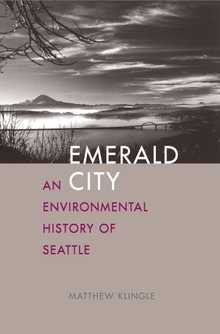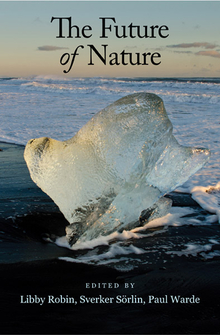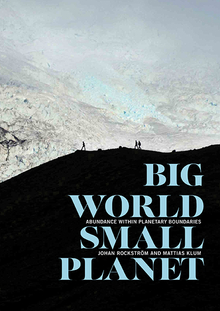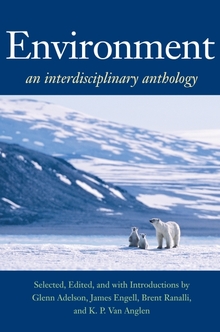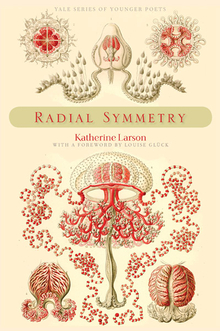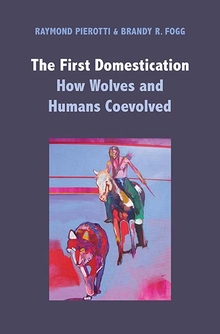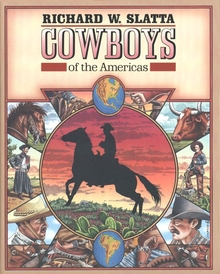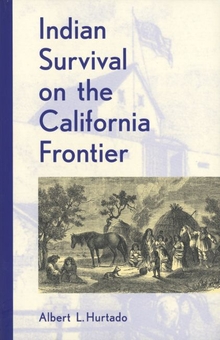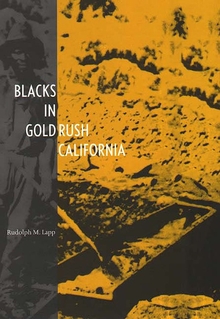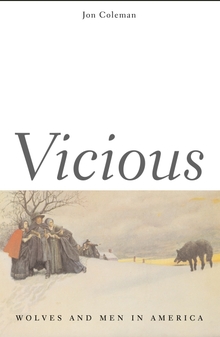Emerald City
WARNING
You are viewing an older version of the Yalebooks website. Please visit out new website with more updated information and a better user experience: https://www.yalebooks.com
An Environmental History of Seattle
Matthew Klingle
Out of Print
An exploration of the environmental history of Seattle and what it tells us about making cities that are both scenic and just for all
At the foot of the snow-capped Cascade Mountains on the forested shores of Puget Sound, Seattle is set in a location of spectacular natural beauty. Boosters of the city have long capitalized on this splendor, recently likening it to the fairytale capital of L. Frank Baum’s The Wizard of Oz, the Emerald City. But just as Dorothy, Toto, and their traveling companions discover a darker reality upon entering the green gates of the imaginary Emerald City, those who look more closely at Seattle’s landscape will find that it reveals a history marked by environmental degradation and urban inequality. This book explores the role of nature in the development of the city of Seattle from the earliest days of its settlement to the present. Combining environmental history, urban history, and human geography, Matthew Klingle shows how attempts to reshape nature in and around Seattle have often ended not only in ecological disaster but also social inequality. The price of Seattle’s centuries of growth and progress has been paid by its wildlife, including the famous Pacific salmon, and its poorest residents. Klingle proposes a bold new way of understanding the interdependence between nature and culture, and he argues for what he calls an “ethic of place.” Using Seattle as a compelling case study, he offers important insights for every city seeking to live in harmony with its natural landscape.
Matthew Klingle is associate professor of history and environmental studies, Bowdoin College.
"Emerald City has been eagerly awaited by historians of cities, the environment, and the North American West. Klingle addresses many of the traditional topics of urban history and reframes them as environmental questions."—Carl Abbott, Portland State University
“Seattle is not only among the loveliest of cities, it's also, as Matthew Klingle demonstrates here, one of the most interesting. Not everything in this history will please the boosters, but those who love the great city of the Northwest will find here a new sense of both the city's roots and its possibilities.”—Bill McKibben, author of Deep Economy
“Matthew Klingle's Emerald City tells the story of how the entangled histories of nature and politics in Seattle shaped that city. It is a cautionary tale of private greed and public miscalculation, of good intentions gone awry and some things that came out right. Emerald City is the kind of history that every city needs, and all can learn from it. The story is particular to Seattle, but similar dramas can be read in the landscape of every American city. Required reading for everyone concerned with the future of Seattle, I recommend it for those engaged with city building anywhere.”—Anne Whiston Spirn, author of The Granite Garden
"People and salmon can both prosper if we humans pay attention to the impact of our aspirations on the fish. Matt Klingle’s exhaustive history of Seattle and its salmon reminds us, painfully at times, of the consequences to nature of our mindless pursuit of human well being."—William D. Ruckelshaus, Chairman, The Puget Sound Partnership and former Administrator, Environmental Protection Agency
“Matthew Klingle is among the new generation of urban environmental historians who truly understand the need to turn aside the superficial and unnecessary gulf between culture and nature to better understand urban development. The perspective of Seattle as a latter day ‘Emerald City’ from L. Frank Baum's The Wonderful Wizard of Oz is masterful imagery and a pertinent departure point for reconsidering how cities evolve over time.” —Martin V. Melosi, author of The Sanitary City
“A triumph. . . . Klingle knows Seattle backward and forward; he also knows American cities in general, so this is not a strictly local story. . . . A marvelous book and one, moreover, that should be essential reading for concerned Seattleites and environmental historians alike.”—Richard Walker, Annals of the Association of American Geographers
Publication Date: November 27, 2007
46 illus.

